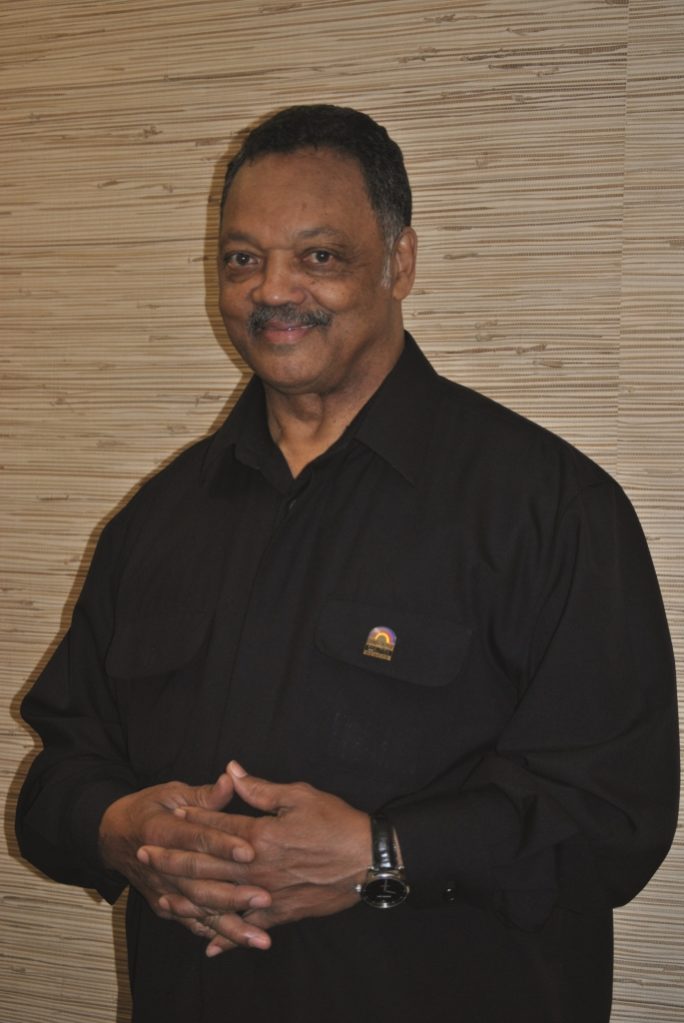American civil rights activist, Reverend Jesse Jackson, is no stranger to South Africa. He came to Africa many times as he led radical African-Americans against apartheid in the 1970s and 80s.

Reverend Jesse Jackson
The Baptist minister, who was also a US presidential candidate in the late 1980s, landed at OR Tambo Airport in Johannesburg in January as a guest of honor for the centenary celebrations of the African National Congress. It was a South Africa very different to the one he encountered three decades ago.
“The contrast between arriving in [what was then] Jan Smuts Airport and [what is now] OR Tambo airport, that in itself is hugely impactful, beyond this generation’s imagination. Back in 1979 there were no black pilots or flight attendants. The only blacks you saw were pushing brooms, they were under great intimidation and walking around with pass books in their hands.”
In 2012, the political issues of South Africa are far from over. This time around, Jackson, who marched alongside Dr. Martin Luther King Junior in the 60s in the civil rights movement, landed in the heat of debate over one of the great issues of Africa: nationalization.
For many months in Africa’s biggest economy, there has been argument over whether South Africa should nationalize its crown jewels like the mining industry. Radicals like suspended ANC Youth League leader, Julius Malema, who is appealing his suspension from his post as president, has called for nationalization now in the cause of helping the poor with education and employment.
Jackson says it needs to be on the ruling party’s to-do list.
“The idea is to somehow create a fairer distribution of resources. [ANC] must determine the timetable for that, but too few people own too much wealth and too many have too little. Therefore, there must be some plan for re-investment so you have a fairer distribution of drinkable water, housing, healthcare and education,” says Jackson.
When Jackson reached the ANC celebrations, South African president, Jacob Zuma, used his speech as an indication that the party may want to put the issue to bed, saying government had acquired the state’s resources and would be using them appropriately to the people.
In August 2011 Mineral Resources Minister, Susan Shabangu, said: “Foreigners will not invest in South Africa; Nationalization is a bad idea… The correct question should not be whether or not we nationalize; the question, in my view, should be: How do we make use of our vast mineral wealth to eliminate [poverty, inequality and unemployment]? Is this perhaps not a more productive debate?”
Shabangu’s comments came to the dismay of many young black, unemployed South Africans as well as activists like Jackson.
“This is government induced wealth and neglected poverty so South Africa’s having to overcome centuries of mal-distribution of opportunity. Some of your best minds were driven out the country, others were not allowed in the country. So you cannot dismiss the devastating long term, continuous resonation of the economic apartheid system. This South Africa is different today; you are now free but unequal. Freedom required the will to sacrifice, to overcome barbarity and indecency. Now the challenge is equality, which requires a different set of skills,” says Jackson.
The nationalization question will be decided in December 2012, at the ruling party’s elective conference, which will also be held in Mangaung, Bloemfontein.
For now, Jackson says, the country’s democratic progress is headed in the right direction, but there is still a lot to learn about transparency, checks and balances.
“It’s still early in the morning for the new South Africa,” he says.
